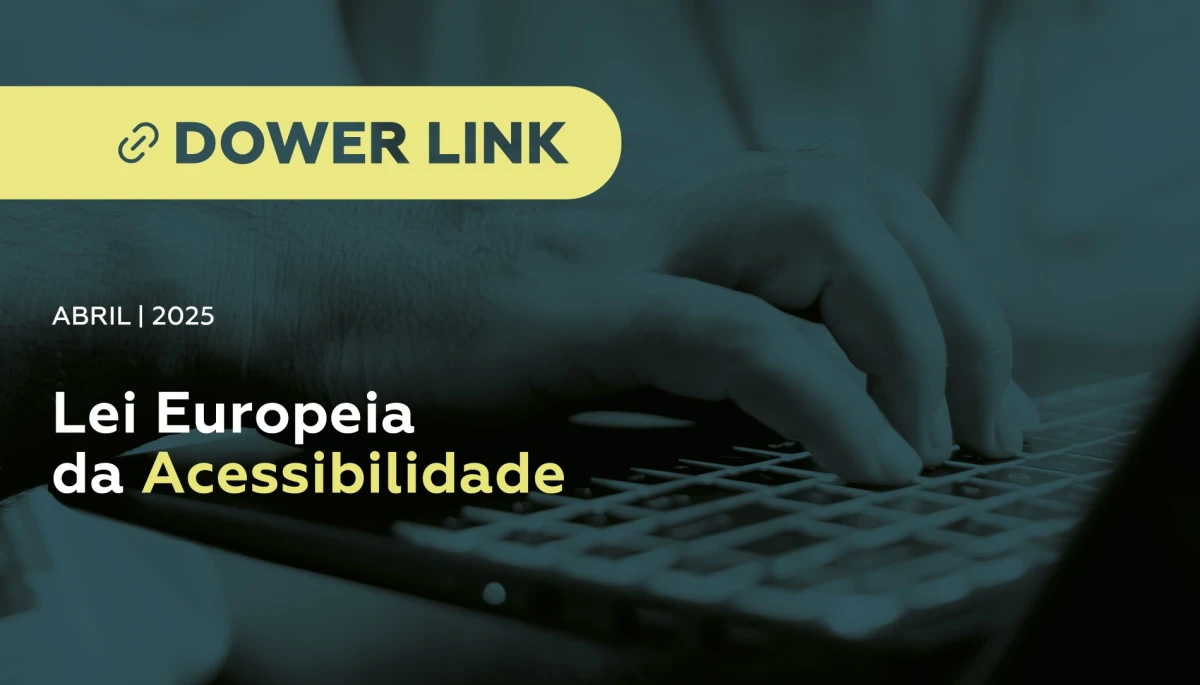The European Accessibility Act establishes a set of mandatory requirements to ensure that websites, digital platforms, and online content are accessible to all people, including those with disabilities. This legislation aims to promote equal access and digital participation for all citizens of the European Union, regardless of their physical or cognitive abilities.
Compliance with the European Accessibility Act is not limited to the adaptation of digital interfaces but also includes the creation of content that is easily usable by people with different types of disabilities, such as visual, auditory, motor, and cognitive impairments. Furthermore, the responsible entities must ensure that their websites and platforms meet the established criteria, which may include design adaptation, the use of assistive technology, and the optimization of navigation and interaction with the platforms.
Object and Scope of Application
Articles 1.º e 2.º
It applies to the following products:
- Computer equipment and operating systems;
- Self-service terminals (payment terminals, ATMs, ticket vending machines, automatic registration machines, self-service terminals providing information);
- Electronic communication equipment (smartphones, mobile devices, landline phones);
- Audiovisual equipment (TVs, radios) → Must have automatic subtitles and accessible controls;
- E-book readers.
It applies to the following services:
- Electronic communication services – telecommunications, internet.
- Audiovisual services – Television programming and streaming platforms must include subtitles, audio description, and sign language;
- Public transport;
- Banking services:
- Credit contracts encompass consumer loans regulated by two specific decrees: Decree-Law No. 133/2009, which regulates consumer credit (e.g., personal loans and credit cards), and Decree-Law No. 74-A/2017, which regulates mortgage credit (such as home loans).
- Governed by the Securities Code, they include: Buying and selling financial instruments (stocks, bonds, etc.); Investment portfolio management; Investment advisory services;
- Order execution services (brokerages and investment banks).
- Covered by Decree-Law No. 91/2018, they include: Bank transfers; Direct debits and card payments; Payment initiation by third parties (e.g., MB WAY, Apple Pay).
- Regulated by Decree-Law No. 107/2017, they include: Opening and managing bank accounts; Managing and accessing bank statements; Changing bank accounts between institutions.
- Regulated by Decree-Law No. 91/2018, it covers: Services such as PayPal, prepaid cards, and digital wallets; Online and physical payments using electronic money. - E-commerce – Online shopping platforms must be adapted for people with disabilities;
- E-books and digital publications.
It includes accessibility in emergency call handling and treatment (112).
This DL does not apply to microenterprises providing services and certain content on websites and mobile applications.
Accessibility Requirements and Free Movement
Chapter II
Products and services must be designed to be accessible.
Obligations of Economic Operators
Chapters III and IV
Manufacturers: Must ensure that products comply with the requirements, prepare technical documentation, and issue the EU Declaration of Conformity and CE marking.
Importers and Distributors: They are responsible for verifying whether products comply with the standards before placing them on the market.
Service Providers: They must ensure that the services provided meet the accessibility requirements.
Compliance and Oversight
Capítulos VII e VIII
The Declaration of Conformity and CE marking are mandatory;
Supervisory entities (ANACOM, ASAE, Bank of Portugal, among others) verify compliance and apply sanctions in case of non-compliance;
Products or services that do not meet the requirements can be withdrawn from the market.
Offenses and Penalties
Chapter XI
Fines may be imposed on manufacturers, importers, distributors, and service providers who fail to comply with the rules.
Serious Offenses
For individuals: Fines between €650 and €1,500.
For legal entities: Fines between €12,000 and €24,000.
Very Serious Offenses
For individuals: Fines from €2,000 up to the maximum limit set in Decree-Law No. 433/82;
For legal entities: Fines from €24,000 up to the maximum limit set in the same decree-law.
- Entry into force
Chapter XIII
Companies have until June 28, 2025, to ensure the compliance of their products and services.
The law came into effect on December 7, 2022.
Obligations of Manufacturers
Manufacturers must ensure that products are designed and manufactured in accordance with accessibility requirements – General accessibility obligation.
Specific measures that manufacturers must adopt:
- Prepare technical documentation and apply the conformity assessment procedure (Annex I of the Decree-Law);
- Issue an EU Declaration of Conformity and affix the CE marking on the products.;
- Keep the technical documentation and the EU Declaration of Conformity for 5 years after placing the product on the market;
- Establish procedures to maintain compliance in mass production and make adjustments if there are changes in technical standards;
- Ensure product traceability, ensuring that products have an identifiable type, batch, or serial number;
- Include information in Portuguese on the products, such as the manufacturer’s name, brand, and contact address;
- Provide clear and accessible instructions and safety information to consumers;
- Take corrective measures or withdraw the product from the market if an accessibility issue is identifiedCooperate with regulatory authorities (such as ASAE or ANACOM) and provide documentation when requested.
What happens if a product does not comply with these rules?
- Authorities can impose fines and sanctions.
-
Products can be withdrawn from the market.
-
Manufacturers may be required to make adjustments to ensure compliance.
Obligations of Importers
Importers must ensure that products comply with accessibility requirements – General accessibility obligation.
Specific measures that importers must adopt:
- Verify compliance before importation:
- Ensure the manufacturer has applied the conformity assessment procedure.
- Confirm that the product has the CE marking and is accompanied by the required documents (EU Declaration of Conformity).
- Ensure product traceability:
- Products must indicate, in Portuguese, the name, registered trade name, or trademark and the manufacturer’s address.
- If the manufacturer has not included this information on the product, the importer must include it on the packaging or in a document accompanying the product.
- Ensure accessible information for the consumer:
- The product must be accompanied by instructions and safety information in Portuguese, in a clear and intelligible manner.
- Ensure proper storage and transport conditions:
- The importer must ensure that the storage and transport conditions do not undermine the product’s accessibility requirements.
- Keep documents for 5 years:
- Maintain a copy of the EU Declaration of Conformity for 5 years after placing the product on the market.
- Have the technical documentation available for authorities when requested.
- If a product is non-compliant:
- The importer cannot place the product on the market until it is compliant.
- They must inform the manufacturer and the competent authorities if an accessibility issue is discovered in the product.
- If necessary, the importer must help withdraw the product from the market or implement corrective measures.
- Cooperate with regulatory authorities:
- Provide all necessary information to the authorities when requested.
- Assist authorities in ensuring that products comply with accessibility requirements.
What happens if an importer does not comply with these rules?
- They may be fined or penalized according to Chapter XI (Offenses).
-
Products can be withdrawn from the market if they do not meet the requirements.
-
The importer can be held responsible if they market non-compliant products.
Obligations of Distributors
- Verify compliance before marketing:
- Ensure the product has the CE marking.
- Confirm it is accompanied by the mandatory documentation, including the EU Declaration of Conformity.
- Ensure it comes with instructions and safety information in Portuguese.
- Ensure product traceability:
- Confirm that the manufacturer has indicated the name, registered trademark, and contact address on the product (or packaging/certificate).
- Verify if the importer has also included their information on the product, if applicable.
- Ensure proper storage and transport conditions:
- The distributor must ensure that storage or transport conditions do not affect the product’s accessibility.
- If a product is non-compliant:
- The distributor cannot sell it until compliance is ensured.
- They must inform the manufacturer or importer about any identified accessibility issues.
- If necessary, notify the competent authorities.
- Take corrective measures:
- If a product is already on the market and an accessibility issue is identified, the distributor must withdraw it or ensure corrections are made.
- Provide information to the authorities about the corrective measu
- Cooperate with regulatory authorities:
- Provide documentation and information whenever requested by the authorities.
- Help ensure that accessible products meet legal requirements.
What happens if a distributor does not comply with these rules?
- The distributor may be held responsible for selling non-compliant products.
-
Products can be withdrawn from the market if they do not meet the requirements.
-
The importer may be held responsible if they market non-compliant products.
Obligations of Manufacturers
Manufacturers must ensure that services are designed and provided in accordance with accessibility requirements.
- Specific measures that manufacturers must adopt:
- Service providers must prepare detailed documentation about the service’s accessibility.
- This information must comply with what is outlined in Annex II of the decree. - Explanation of compliance with accessibility requirements:
- Service providers must explain how the service meets the accessibility requirements.
- This information must be made available to the public both in writing and orally.
- Communication must be accessible (e.g., simple language, braille, audio).
- This information must be available throughout the period the service is offered. - Maintenance of Compliance Over Time:
- Service providers need to ensure that their services remain accessible even with changes:
1.If there are changes in how the service is provided.
2. If there are changes in accessibility legal requirements.
3. If there are new technical standards or European accessibility specifications. - Correction of Compliance Failures:
- If a service does not meet accessibility requirements, the provider must:
1.Take corrective actions to address the failure.
2. Inform the competent authorities of the EU Member States where the service is provided.
3. Provide information about the failure and the measures taken to correct it. - Provision of Information to Regulatory Authorities:
- If requested, service providers must provide all necessary documentation to the authorities responsible for oversight.
- This documentation must be available in Portuguese and demonstrate that the service complies with accessibility standards. - Cooperation with Regulatory Authorities:
- If an inspection detects failures, the service provider must cooperate to resolve the issue.
- This may involve making adjustments to the service or providing more information to the authorities.





